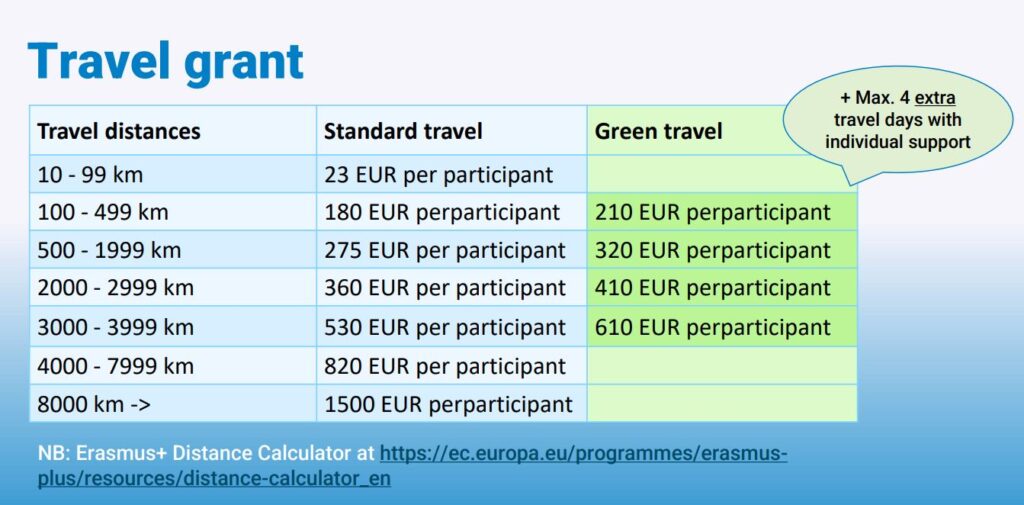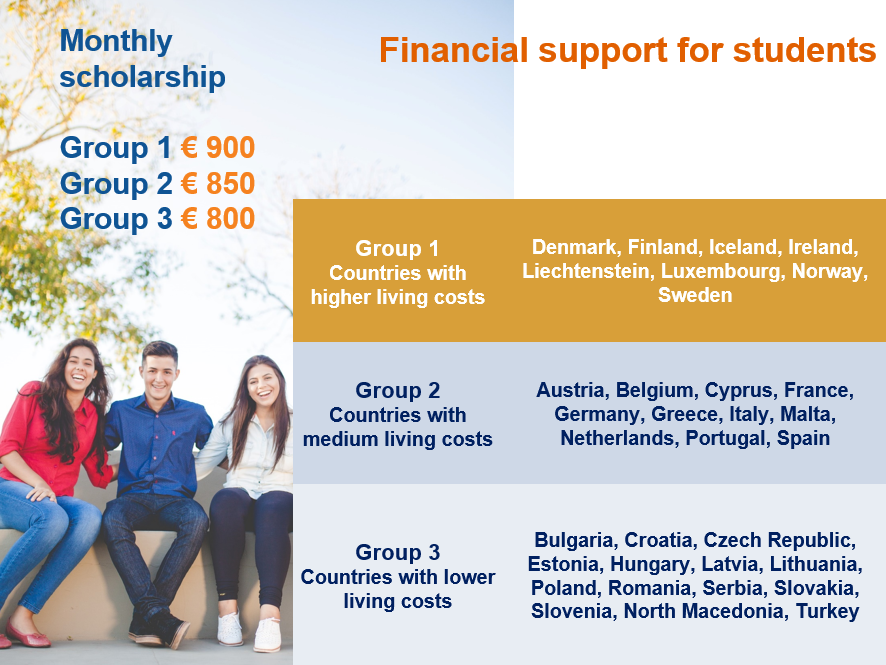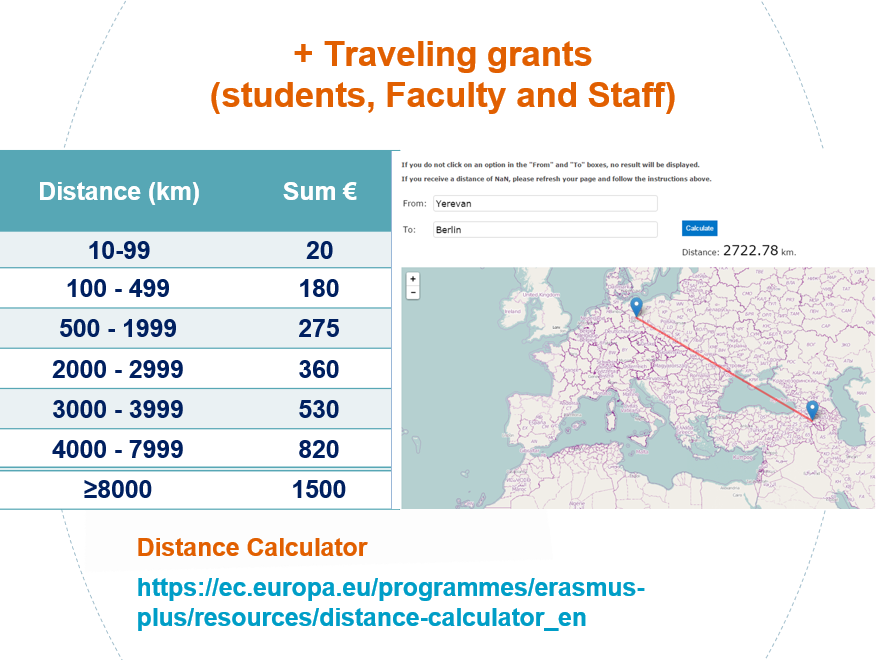To study or undergo a traineeship abroad, you must be registered in a higher education institution and enrolled in studies (Bachelor, Master and Doctoral level) leading to a recognised degree. For students in the first cycle (BA), you need to be at least in the second year of your studies to be able to participate in a study exchange. Your period of study abroad must be relevant for your degree-related learning and personal development needs, and be part of the study programme that you are following.
Your home institution and the receiving institution must have an Inter-Institutional Agreement between them for you to study or undergo a traineeship abroad with Erasmus+ International Credit Mobility.
Your study period abroad can last from a minimum of 2 months (or 1 academic term or trimester) to a maximum of 12 months.
Your traineeship abroad can last from a minimum of 2 months to a maximum of 12 months or minimum 3 months if combined with a study period.
You can benefit of an exchange abroad with Erasmus+ multiple times but your total time abroad (study abroad periods included) may not exceed 12 months within one cycle of study. “Cycle” refers to the level of study as defined by the European Qualifications Framework (EQF):
- First cycle (Bachelor or equivalent) EQF – 5/6
- Second cycle (Master or equivalent) EQF 7
- Third cycle (Doctoral or equivalent) EQF 8
Before the study abroad period:
- You, your sending and receiving higher education institutions must sign a Learning Agreement for studies to ensure a transparent and efficient preparation of the exchange abroad, as well as to agree on how activities successfully completed abroad will be recognised. This document sets out rights and responsibilities of the various parties.
- You will receive the Erasmus+ Student Charter, explaining your rights and obligations with respect to your period of study abroad.
After the study abroad period:
- The receiving higher education institution must provide you and your sending institution with a transcript of records confirming that the agreed programme has been completed and acknowledge the results.
- Your higher education institution must recognise the credits (using ECTS credits or an equivalent system) as agreed in the Learning Agreement before the mobility and count them towards your degree, without any further requirements.
Read more on the Guidelines on how to use the Learning Agreement for Studies.
Before the traineeship abroad:
- You, your higher education institution and the receiving organisation must sign a Learning Agreement for Traineeships to ensure a transparent and efficient preparation of the exchange abroad. This document sets out rights and responsibilities of the various parties, a detailed programme of the traineeship, information on insurance, and how your traineeship will be recognised upon successful completion.
- You will receive the Erasmus+ Student Charter, explaining your rights and obligations with respect to your traineeship abroad.
After the traineeship abroad period:
- The receiving organisation/enterprise should send you and your higher education institution a Traineeship Certificate, normally within five weeks after successful completion of the traineeship.
- Your higher education institution must recognise your traineeship abroad, according to the commitments agreed upon in the learning agreement and without any further requirements..
Read more on the Guidelines on how to use the Learning Agreement for Traineeships
International Credit Mobility (ICM) supports teaching and training periods at Higher Education Institutions (HEIs) abroad. If you are an academic or administrative staff member in an Armenian higher education, you can spend time teaching or getting training at a higher education institution in an EU Member state of a third country associated with the Programme.
To participate in ICM for university staff, first of all your institution must have signed an Inter-Institutional Agreement with the receiving institution. Before beginning your teaching or training period, you, your HEI and the receiving institution must sign a Mobility Agreement for Teaching or Mobility Agreement for Training. This document sets out your learning goals, rights and responsibilities and also how the teaching period will be recognised.
The teaching period must last a minimum of 5 days and maximum of 2 months. This excludes travelling time. During your stay abroad, the teaching activity must comprise a minimum of 8 hours per week (or any shorter period of stay) of actual teaching time.
The training period must last a minimum of 5 days and cannot last more than 2 months. This excludes travelling time.




